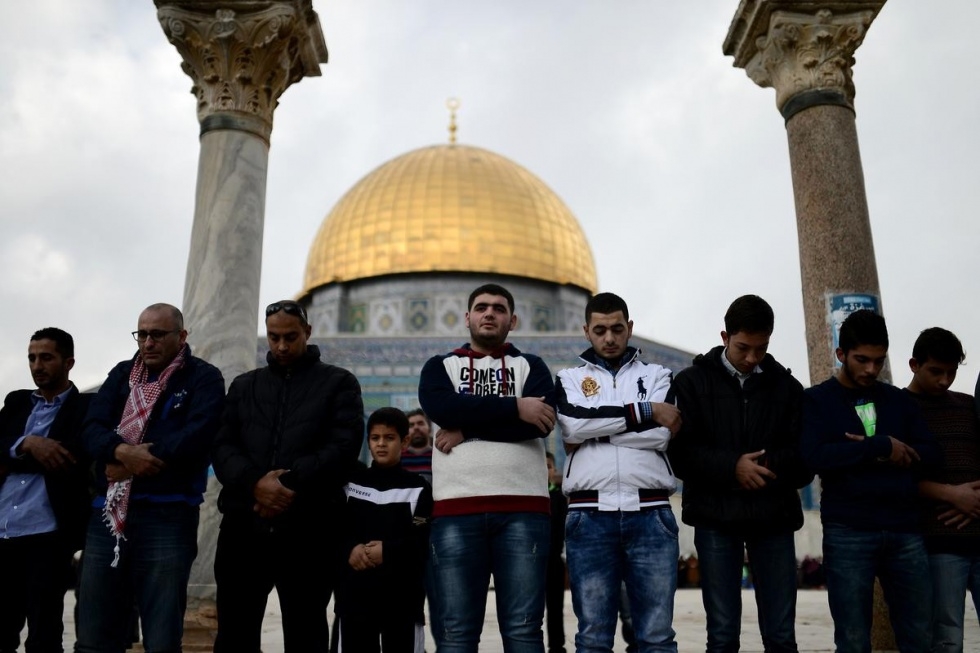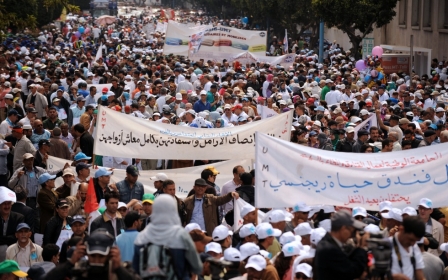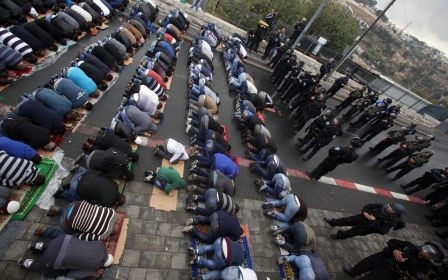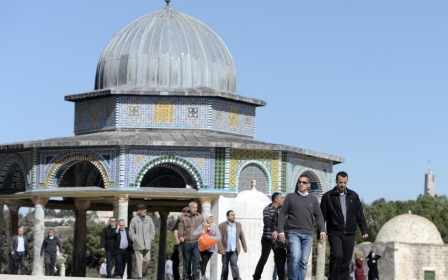A vision of Jerusalem for all faiths

Recently, Rabbi Brigadier-General, Rafi Peretz, Chief Rabbi of the Israeli Defence Force (IDF) was quoted as saying that "Jerusalem is not mentioned in the Koran even once… It's not even hinted at,” and that “90 percent of Arabs don't know what's written in the Koran.” The IDF apologised for the rabbi’s statements, saying that they were taken out of context and that he apologised if they “offended the Arab population”. As the comments made regarding Jerusalem’s importance to Islam concerned all Muslims and not just Arabs, education, rather than opprobrium, seems a healthier approach where the issues involve subtleties of religion, culture and history.
Peretz’s statements are reflective of the disease of religious and ethnic intolerance and misunderstanding that have plagued the ancient city of Jerusalem that is sacred to all three major monotheistic religions of Christianity, Judaism and Islam. Recent clashes at the site of the Temple Mount, known as the Haram Al-Sharif to Muslims, resulted in the temporary closure of the Al-Aqsa Mosque, which re-opened after widespread protests in the Muslim world. Recent meetings between US Secretary of State, John Kerry, Israeli Prime Minister, Benjamin Netanyahu and Jordanian King, Abdullah II resulted in a recommitment to the status-quo at Al-Aqsa Mosque and a de-escalation of tensions.
Peretz’s statements come at a time of heightened turmoil in Israel and the occupied territories. Increased settlement building in East Jerusalem and a recent law passed by the Israeli Knesset, by which “national rights” are reserved for Jews and not others, have flamed criticisms of Israel as a modern apartheid state. Peretz’s statements fail to appreciate the deep and rich ties that non-Jewish people, particularly Christians and Muslims, have to the sacred city of Jerusalem.
Jerusalem is sacred to Christians, Jews, and Muslims
Although Israel controls all of Jerusalem, it is a city that holds great significance to the three great monotheistic religions of the world.
For Christians, the sanctity of Jerusalem hails to the life and times of Jesus Christ, who is believed to have performed miracles in the sacred city and where he was believed to have been crucified. To Jews, the city of Jerusalem has special significance, being the direction towards which all Jews pray and the site that Jews believe was home to the Temple of Prophet Solomon. For Muslims, the city of Jerusalem is also of great significance, believed by Muslims to be the third most sacred place in Islam after Mecca and Medina.
Rabbi Peretz’s statements alleging that Jerusalem is not referred to in the holy book of Muslims, the Koran, reflects his misunderstanding of Islam.
The Holy Land in the Koran
The Holy Land is specifically mentioned in The Koran, in 5:21-26, describing the story of the entrance of the Jewish people to the Holy Land, their disagreement with Prophet Moses, and their banishment to wandering for a period of forty years. Al-Aqsa is also specifically mentioned in the Koran at 17:1, which is accepted by the majority of Muslim scholars to refer to the ascension of Prophet Mohammad to the heavens from Al-Aqsa, known in Arabic as “Lailat Al-Miraj”. The event was of such significance that there is an entire chapter of the Koran dedicated to the topic. Lailat Al-Miraj is also of special significance in the Muslim world, celebrated as a festive holiday in many Muslim majority countries. The Holy Land of Israel is also referred to in the Koran at 21:71, which states “And We rescued him [Ibrahim] and Lot (and brought them) to the land which We have blessed for (all) peoples.” Here it is referred to as a land that is blessed for all people. Again, in the Koran at 21:81, the Holy Land is referred to with regard to Prophet Solomon, where it states: “And unto Solomon (We subdued) the wind in its raging. It set by his command toward the land which We had blessed. And of everything We are Aware.”
The Holy Land in the Sunnah and Hadith
In addition to the Koran, the majority of Muslims believe in the Sunnah, or the example and sayings of Prophet Mohammad, as a primary source for religious guidance. The hadith literature, which complement and explain the Koran, contain numerous references to Jerusalem. They include statements and accounts of the Prophet Mohammad and his companions. One hadith, recorded in the famed compendiums of Imams Bukhari and Muslim, states: “Set out deliberately on a journey only to three mosques: this mosque of mine [in Medina], the Sacred Mosque [in Mecca], and Al-Aqsa Mosque.”
Another famous hadith recorded by Imam Bukhari states “a prayer in the Sacred Mosque (in Makkah) is worth 100, 000 prayers, a prayer in my mosque (in Medina) is worth 1, 000 and a prayer in Jerusalem is worth 500 prayers more than in an any other mosque.” There are several other hadiths that mention Jerusalem that are not mentioned here for the sake of brevity. One narrative of interest appears in the famous Ihya Uloom Al-Din, or Revival of The Religious Sciences, by Imam Ghazali:
K’ab al-Ahbar related, “A severe drought befell the people in the time of Moses, the Emissary of God. He went out with the children of Israel and prayed with them for rain. However, they did not have rain. So he went out three times, but they did not have rain. Then God (Great and Glorious is He!) revealed to Moses (upon whom be peace), ‘Verily I will not respond to you, for there is a slanderer among you.’ Moses asked, ‘O my Lord, who is he? [Tell us] so that we can expel him from among us.’ And God revealed to Moses, ‘O Moses, I am prohibiting you from slandering, and can I become Myself a slanderer?’ Moses said to the children of Israel, ‘Repent of slander to your Lord, all of you.’ And they repented and then He sent rain upon them.”
Cultural and historical significance of Al-Aqsa as first direction of prayer for Muslims
It is imperative to note that Al-Aqsa and the direction of Jerusalem served as the first direction towards which Muslims prayed, known as the “qibla” in Arabic. For the first 13 years of Islam the qibla for Muslims was Jerusalem. In the 17th month after the migration of the nascent community of Muslims from Mecca to Medina, Muslims were commanded to change the direction of their prayers towards Mecca. The event whereby the qibla was changed to Mecca is referred to in the Koran at 2:143 and 144, respectively, and is historically well documented.
Pious prophets and Muslim forebears buried in the Holy Land
There are a number of prophets, pious saints, and early forebears of Islam who are buried in the Holy Land. Some say there are as many as 500 prophets that Muslims believe in that are buried in the Holy Land. Some of the early Muslims and the closest companions of the Prophet Mohammed are among those buried in the Holy Land, including Ubada ibn al Samit, Shaddad ibn Aws ibn Thabit al Ansari and Tamim al Dari.
Reactions of Muslim scholarship
Muslim thinkers and scholarship have reacted to Rabbi Peretz’ statement. Imad-ad-Dean Ahmad, Ph.D., of the Minaret of Freedom Institute, stated:
"Jerusalem is mentioned in Surah 17, although not by name. The rabbi is welcome to his views that this reference is not to Jerusalem, but it is disingenuous of him to ignore the fact that Muslims have understood this to be a reference to Jerusalem for the majority of their history. The claim that Jerusalem is of no importance to Muslims is absurd since it was the direction of prayer established with the founding of the first Muslim city-state by the Prophet himself (peace be upon him) and that it has been the subject of praise of early Muslims to the point that such praise constitutes an entire branch of Muslim literature called the ‘fada'il bayt al-m,aqdis’ (the merits of Jerusalem). There is absolutely no doubt among historians that the second Caliph Umar ibn Khattab asked to be shown the Temple Mount upon the conclusion of the surrender of Jerusalem in the first century of Islam… had it cleansed and perfumed and then prayed there, both in the belief that it was the site of the Prophet's "Night Journey" and out of respect for the earlier prophets who had lived there (peace be upon them all)."
Dr. Sulayman Nyang, Professor and Chairman of the African Studies Department at Howard University, had the following to say regarding the Rabbi Peretz statements:
“There is a tragedy of miscommunication between the two peoples in terms of reading and understanding each other's scriptures. Competent Jewish scholars can be quoted appropriately with respect to the origins and significance of the Temple Mount. Similarly, Muslim discourse on the significance of Jerusalem in Muslim consciousness and in Muslim history has been missed by both Jewish nationalists in Israel and Zionist intellectuals abroad, who are dominated by the mutually borrowed secular nationalism of the West.”
"The Arab nationalism which unlearned Arabs who are not sufficiently grounded in Islamic thoughts joyfully articulate, provides the comedy of errors for their Zionist rivals. While singing the songs of secular nationalism on both camps, they bowed to the Moloch of their ancestors and forgot what the Prophet Mohammed taught. Is it not true, in his lifetime, the Muslims as refugee in Yathrib (now called Medina) bowed towards Jerusalem?”
"That is why, this second site after Mecca, has historically captured the imaginations of Muslims around the globe. Evidence for these claims can be found in the poetry of Muslims who travelled at great odds to perform their pilgrimages. Not only did they visit Mecca, but they also journeyed to Medina and Jerusalem. This is why in Medina, those who are deeply concerned about archaeological remains would do everything within their power to preserve the place called "al Masjid al-Qiblatain". This is the site reminding the Muslims that during the lifetime of the prophet, members of his community bowed towards Jerusalem.”
“Students of Jewish and world history know very well that at this time in our history, the power, majesty and glory of Jewish thoughts and history were gone. The Hebrew people who were at this time simply called "Jews" after the disappearance of the lost tribes, lost their original homeland. What is now called the Temple Mount was historically… remodelled and renewed to spiritual and historical glory by the triumph of Omar Ibn Khattab, the second Khalifa of Islam.”
“The tragedy [of] Jerusalem lies in the great debates about territorial imperatives and the absence of careful and critical thought among interfaith dialogue on the one hand, and serious evaluations of interpersonal relationships between Jews, Christians and Muslims.”
A vision of a Jerusalem for all faiths
When Jerusalem was conquered by the Muslims in 637 AD, led by the Caliph Umar Ibn Al Khattab, he established a peace treaty with the people of the City of Jerusalem, called The Umariyya Covenant. This treaty guaranteed rights of worship for people of all faiths, including Christians and most notably, a Jewish people who had been oppressed for 500 years prior.
It is recorded that Umar declined an invitation by Saint Sophronius to pray in The Church of The Holy Sepulchre for fear of endangering it to those who would convert it to a temple of their own faith. It is this spirit of respect for the faith traditions of neighbours that needs to be restored to the sanctity and zeitgeist of Jerusalem. As the late intellectual Edward Said said: “There is a massive Palestinian-Muslim-Christian-multi-cultural reality in Jerusalem…” Let us work towards preserving that reality."
Saleem Safdar is an attorney who resides in the Washington, DC Metro area.
The views expressed in this article belong to the author and do not necessarily reflect the editorial policy of Middle East Eye.
Photo: Muslims perform Friday Prayer at the courtyard of Al-Aqsa Mosque in Jerusalem, Israel on 28 November, 2014 after Israel has lifted restrictions on Muslims entering Al Aqsa mosque (AA)
New MEE newsletter: Jerusalem Dispatch
Sign up to get the latest insights and analysis on Israel-Palestine, alongside Turkey Unpacked and other MEE newsletters
Middle East Eye delivers independent and unrivalled coverage and analysis of the Middle East, North Africa and beyond. To learn more about republishing this content and the associated fees, please fill out this form. More about MEE can be found here.





